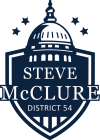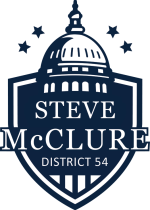With sales of cannabis for recreational use set to begin on January 1, state and local governments, along with Illinois businesses, are continuing to prepare for the new law to take effect. During the just-completed fall veto session, the Illinois General Assembly approved follow-up legislation to clear up issues with the legalization process.
The new bill includes language barring restaurants and bars from allowing cannabis consumption, leaving dispensaries and retail tobacco stores as the only locations where public consumption will be allowed. The new bill also bans lawmakers and their family members from owning or operating businesses while in office and for two years after leaving office.
Meanwhile, the Department of Agriculture has now approved 12 cultivation centers to grow cannabis for recreational use. Currently, only cultivation centers licensed to grow for the medical marijuana program are allowed to apply to grow for the recreational market.
The Illinois Department of Financial and Professional Regulation has so far approved 23 dispensaries, or retail stores, as part of the early-approval process. Dispensaries are subject to local laws and zoning rules. Existing medical cannabis sites are allowed to apply to open a second site for adult use sales.
Many local and municipal governments are also considering the question of whether to allow the sale of recreational cannabis within their jurisdictions, and what to set the tax rate at for cannabis products. State law caps the tax rate at 3 percent for the municipality and 3 percent for counties. State sales tax also applies, which varies from 10-25 percent depending on the THC concentration of the product. While some have decided to move forward with allowing sales, many local governments have opted out.


